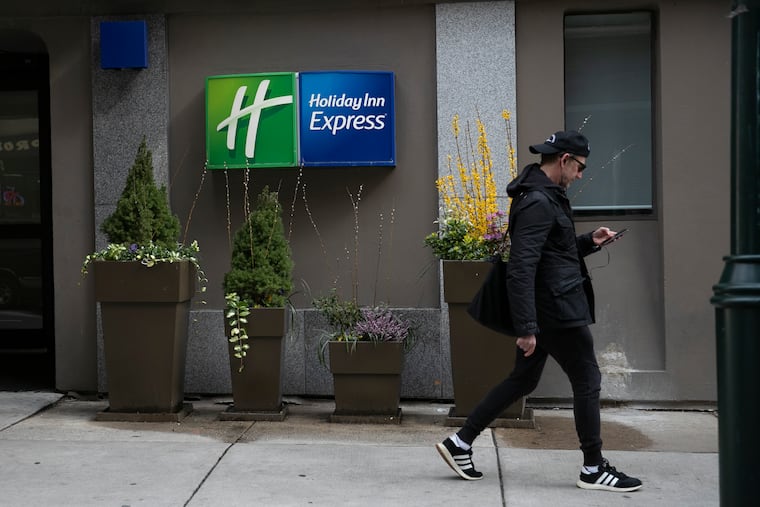Philly should create a jails-to-housing pipeline to mitigate impact of coronavirus | Opinion
Without adequate aftercare plans, many individuals released from jails amid the coronavirus pandemic are unlikely to find themselves in a situation conducive to physical distancing.

Providing housing to people accused or convicted of committing crimes is seldom a rallying cry of political campaigns, and returning citizens often struggle with housing in Philadelphia. Yet linking the few dozen people released from Philadelphia’s jails each day with housing amidst COVID-19 will help maintain public health while better positioning our educational and commercial economies in the long term. To protect everyone, we need to create a jails-to-housing pipeline.
Reducing the jail populations protects incarcerated people, people working in jails, and their families. It is a necessary step to decrease the spread of COVID-19. However, without adequate aftercare plans, many released individuals are unlikely to find themselves in a situation conducive to physical distancing. Homeless shelters are high-risk places for contracting COVID-19. Individuals who have a house to stay in post-release may find self-isolation difficult if their households are crowded — and a period of self-isolation after release is likely the best way to keep family members safe. This is especially critical given the Philadelphia Police Department announcement that some low-level arrests will resume, increasing the influx of people going into jail each day — and the number of people who will need safe shelter upon release.
Without a plan to provide housing — not just shelter beds, but spaces where returning citizens can isolate if they’re sick, or practice social distancing to stay healthy — the city is putting the safety of all of us in jeopardy (with disproportionate impacts on black Philadelphians) and risks prolonging the shutdown. We do not know how many individuals experiencing homelessness in Philadelphia have COVID-19, as testing sites catering to this community have just recently opened. In Boston, 36% of people experiencing homelessness have tested positive, along with 30% of shelter employees. The CDC guidelines for shelters emphasize distancing measures, but effective social distancing is impossible in our current shelter system.
» READ MORE: The city and state need to do more to help Philly’s homeless population. What about empty dorms? | Opinion
The city’s “Roadmap to Homes” plan hinges on a housing-first approach to ending homelessness. This model is built on evidence suggesting that when someone receives permanent housing without complicated application processes that take months, they not only remain in housing but become healthier. This approach is cheaper than the myriad of services someone experiencing homelessness generally receives.
A housing-first approach to COVID-19 would guarantee housing to everyone who wants and needs it (without coercion), regardless of incarceration, substance use, or mental illness history. Intakes would be immediate so that those without cell phones aren’t lost in the shuffle waiting for callbacks — an issue that can severely tamper access. Adequate staffing and services — and perhaps some policy changes — are necessary to ensure safety, as has been highlighted by the tragic deaths of four New Yorkers who were recovering at hotels post-hospitalization. This is an opportunity to provide jobs to many social workers, case managers, outpatient nurses, and students of these disciplines who haven’t been working since the city shut down.
There are roughly 22,125 hotel and dorm rooms in Philadelphia, according to the city and universities’ data. With students at home and restrictions on travel, that translates into many empty rooms that could be repurposed to accommodate people without stable housing and people leaving jail, which would immediately improve public safety and public health. Community organizations and neighbors are ready to help. We can provide food, treatment, and social services to Philadelphians struggling with housing instability, but we can’t provide housing.
Shoshana Aronowitz is a National Clinician Scholars Program postdoctoral fellow and family nurse practitioner. Matt Tice is a therapist at Pathways to Housing PA, supporting individuals transitioning out of homelessness. Oren Gur is a criminologist and policy adviser at the Philadelphia District Attorney’s Office.